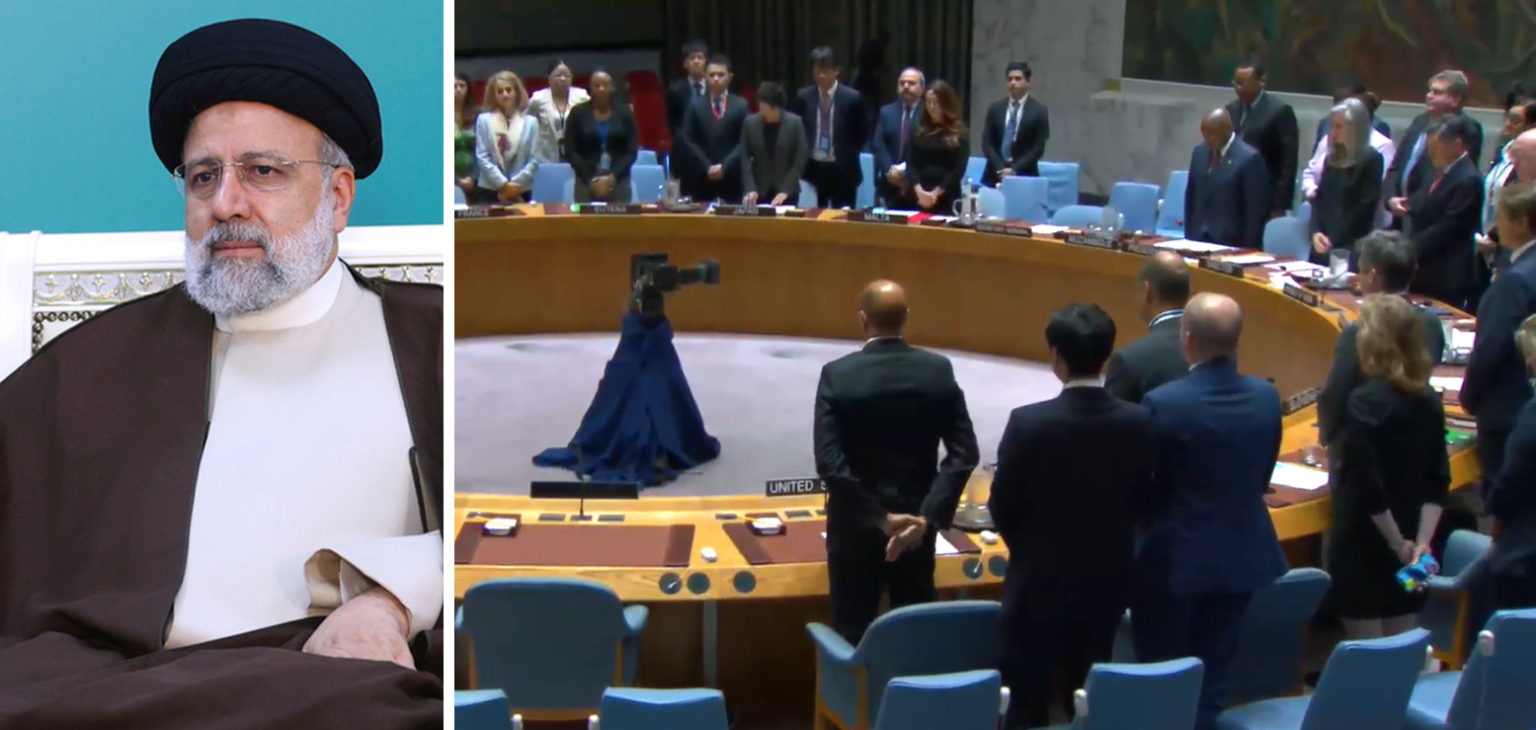The United Nations held a moment of silence for Iranian President Ebrahim Raisi, who died in a helicopter crash. Despite being called the “Butcher of Tehran” due to human rights abuses in Iran, representatives, including the U.S. Deputy Ambassador to the U.N., honored Raisi at the request of Russia, China, and Algeria. Israeli U.N. Ambassador Gilad Erdan criticized the moment of silence, calling it a disgrace. The U.N. Security Council was also criticized for not doing more to secure the release of hostages held by Hamas. Officials from the U.S. State Department pointed to Raisi’s long history of human rights abuses, including the extrajudicial killing of political prisoners.
Experts and advisers to the U.S. Ambassador to the U.N. criticized both the U.N. and the State Department for their response to Raisi’s death. While it is customary to stand for moments of silence at the Security Council, standing for Raisi was seen as misguided, given his brutal record. Raisi was involved in numerous horrific human rights abuses, especially against women and girls in Iran. His death has brought renewed attention to his role in the extrajudicial killing of thousands of political prisoners in 1988 and his general repression of the Iranian people. Iranian state media confirmed Raisi’s death, along with other officials, in a helicopter crash in a mountainous region of northwest Iran.
Raisi was considered a potential successor to Iran’s supreme leader Ayatollah Ali Khamenei and was seen as a protégé within Iran’s Shiite theocracy. However, his human rights record has raised concerns, particularly his involvement in the “death commissions” that sentenced thousands to death in 1988. International human rights groups estimate that up to 5,000 people were executed under his watch. Raisi defended his actions, claiming to be a defender of human rights and security. Activists and rights groups have condemned Raisi’s presidency for escalating state repression and violence against dissent in Iran. The country saw mass protests following the death of Mahsa Amini, with hundreds killed and thousands detained in a subsequent security crackdown.
Raisi’s death has sparked debate about his legacy, with some highlighting his brutal human rights abuses and others acknowledging his potential as a successor to Iran’s supreme leader. The response from the U.N. and the State Department has been criticized for not taking a stronger stance against Raisi’s actions. While a moment of silence may be a diplomatic norm, critics argue that it was inappropriate given Raisi’s record. The international community will need to reassess its relationship with Iran in light of Raisi’s death and the ongoing human rights abuses in the country. The legacy of the “Butcher of Tehran” will continue to be a topic of debate and scrutiny in the years to come.


